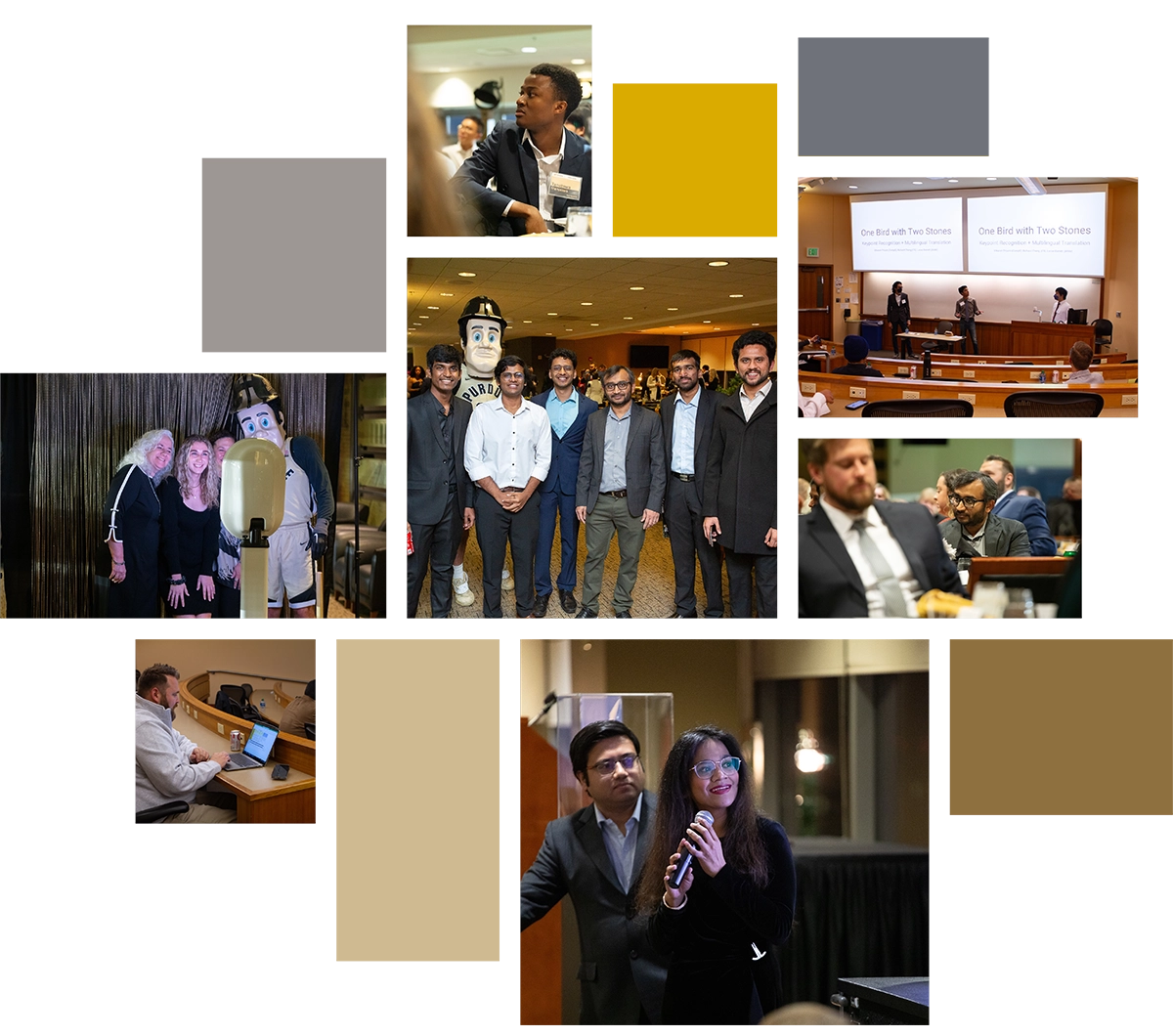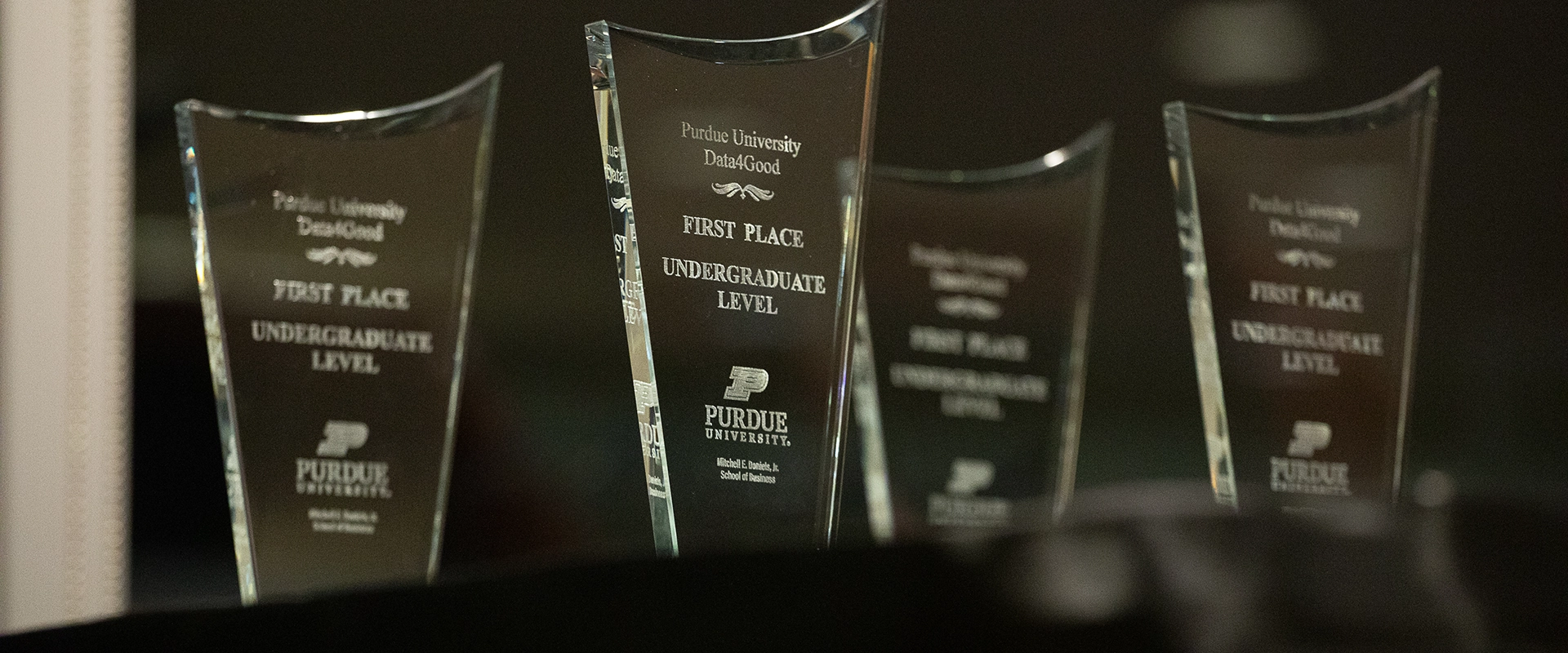
When ChatGPT released a public version of its Large Language Model (LLM) in late 2022, Artifical Intelligence (AI) exited its “prototype” phase. It’s now a tool that individuals, small firms and large corporations may leverage, tailor, tune and refine for their operations.
AI is possible thanks to huge data sets, and data collection, containment and use have led to ethical concerns about security, bias and privacy. AI in the form of LLMs like ChapGPT have sparked organizations to revisit ethical procedures and policies, asking about the best ethical frameworks for each use case. All that data contains both potential and pitfalls. How can we use it for good?
Boilermakers and corporate partners joined efforts in 2023 to give U.S. graduate and undergraduate students a crack at the challenge of using data to solve social problems with the Data4Good Case Competition. Designed in part by the Daniels School of Business' Matthew Lanham, student teams from universities around the U.S. needed to solve one of the most challenging problems in healthcare — giving medical professionals more time with their patients. Sponsored by the Daniels School's master’s programs and the Krenicki Center for Business Analytics and Machine Learning, Microsoft, SAS, INFORMS, Prediction Guard and Certipoint, the case competition drew 282 teams made up of 1,031 students.
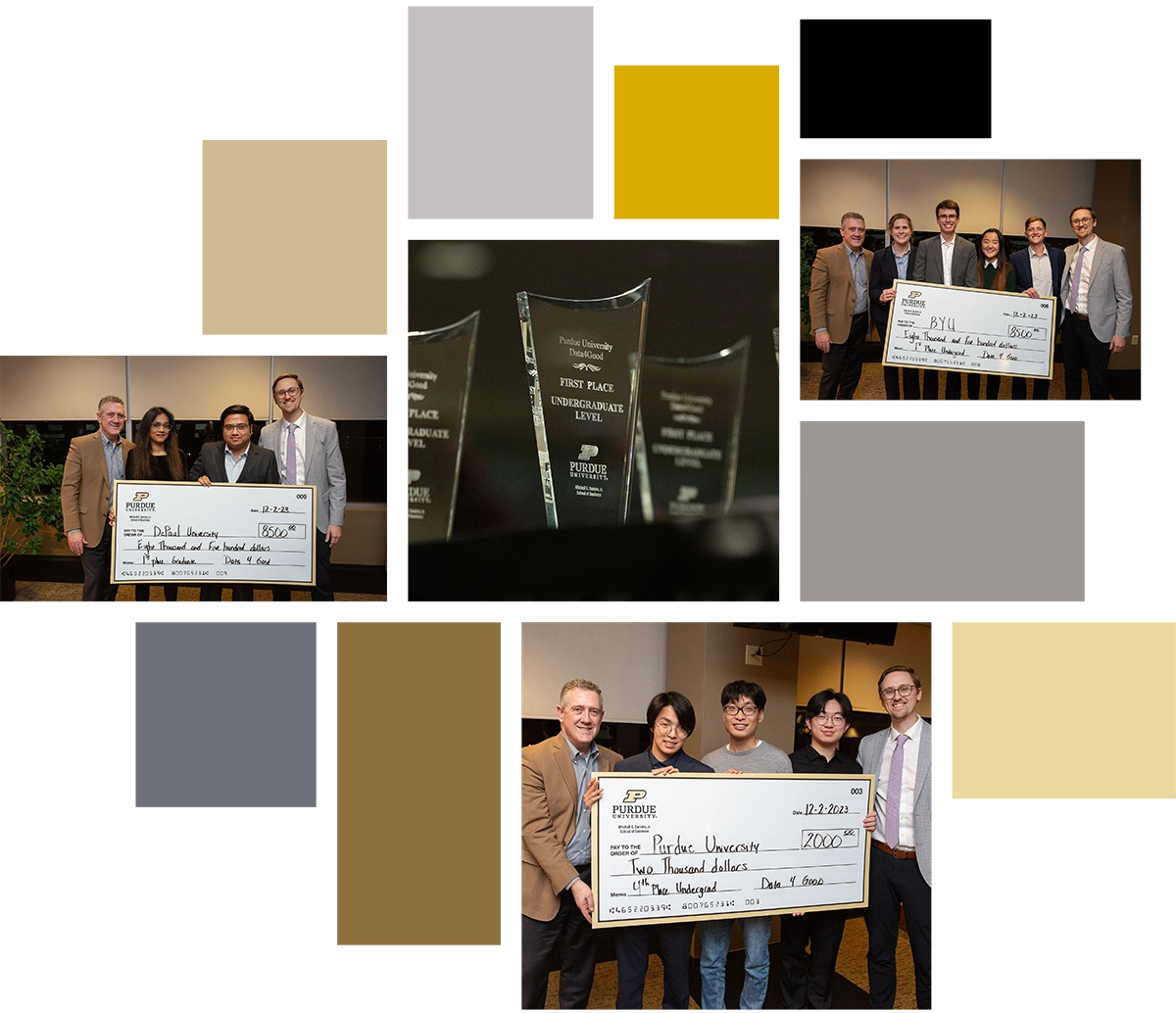
Their specific task? Use machine learning capabilities to train voice data using LLMs to automate the process of gathering medical documentation. This could free up much of a doctor, nurse or physician’s assistant’s time and improve connection and care. A 2018 American Journal of Medicine study finds that medical professionals spend far more time away from patients than with them, and that technology to reduce time spent on medical records could significantly improve the trust and cooperation between patients and health care providers, knowledge on social determinants of health, healthcare interventions and ultimately outcomes.

The Data4Good case involved developing effective systems, which necessitates privacy, security and bias considerations. It’s these kinds of pitfalls that partner Prediction Guard exists to identify and resolve.
“Seeing the wave of new AI technology coming, a lot of businesses are struggling with the pressure to adopt them,” says Prediction Guard Founder and CEO Daniel Whitenack. Whitenack, a Purdue alum (PhD 2012), founded Prediction Guard to help organizations adopt these technologies in a responsible, safe, trustworthy way. “We help them understand the potential privacy and security issues related to LLMs," he says. Prediction Guard provides secure, enterprise-scaled platforms that check the outputs for factuality and harm that might put a company at liability or other issues for their users. “Then we provide support to companies to help them navigate adopting the technology.”
Having taught courses at Purdue, Whitenack consulted with Lanham on constructing a case that was challenging enough to evoke truly innovative solutions without being so simple that everyone could easily solve the program.
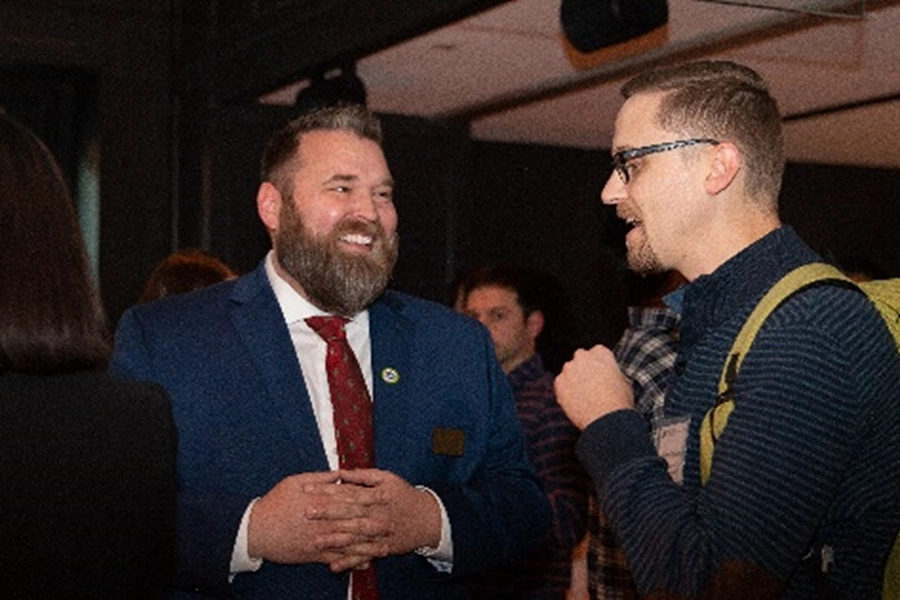
While this type of challenge is part of a larger industry-wide effort at leveraging data for good, an effort that partners SAS and Microsoft contribute to, the Data4Good Case competitors received another benefit. They could pursue professional certifications that would improve their marketability and skill set at no extra cost.
“This particular challenge was a real-world challenge for SAS, which has over 25 professional certifications that corporations send their people to earn,” says Tom Grant, principal analytical training consultant at SAS.
The value-add for companies like SAS – and Microsoft – is that companies using their software are empowered to use it knowing that graduates “are prepared from day one” for accomplishing tasks requiring these software skills, as Lynn Letukas, formerly with both SAS and Microsoft, notes.
Purdue has a notable record for integrating these tools into student education.
“Purdue was a strong proponent of SAS as one of a variety of different tools and technologies that they use in the classroom,” Letukas says. Looking at the usage and the pass rates of Daniels School students, Letukas’ SAS team notes, “Purdue was a standout for us.” Passionate about educating students, Letukas has judged numerous Purdue competitions.
When SAS decided to offer an innovative educator award, Lanham, a clinical assistant professor of management and the academic director for the Daniels School's master's program in Business Analytics & Information Management, was a clear winner. That led to a partnership that seeded the birth of the case competition.
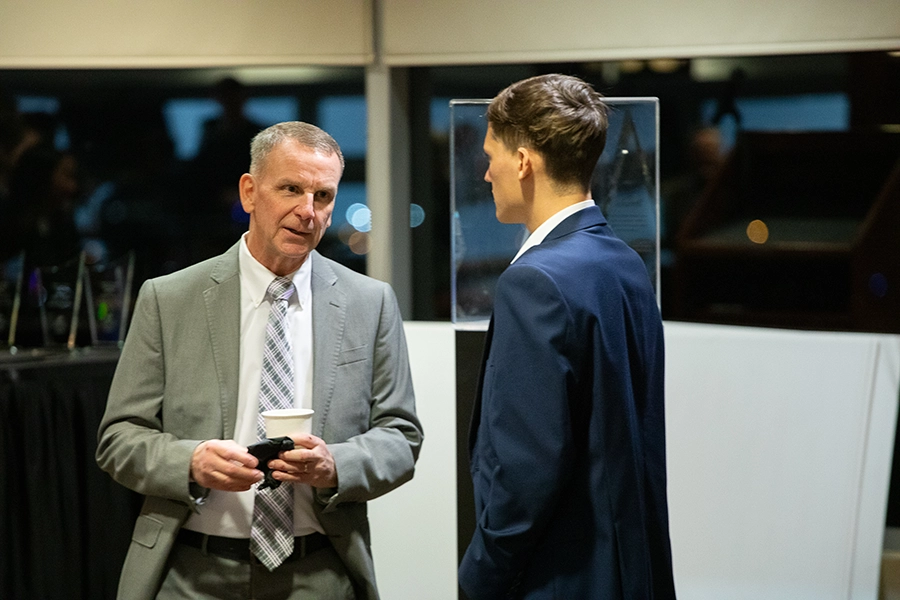
Letukas then joined Microsoft to lead a higher education strategy as part of their Future Skilling Initiative, which “focused on helping students build in-demand skills and competencies in AI and Azure Cloud, and they sought innovative ways to bring this to students,” says Letukas. Because of the long-term relationship working on competitions together, Microsoft leaders and Lanham discussed the possibility of doing a competition. Though Microsoft had fielded several requests to partner in competitions, they chose to work with Purdue, knowing they would serve as a reliable partner and their students were “top notch.” The Data4Good Competition came into being.
2023’s competition focused on doable goals with an eye for the future. Knowing they could reach for global participation if the first year’s results showed promise, the partners were delighted with the excellent results, not only in the large pool of participants but also the number of students who chose to pursue the credentials, the majority of whom passed — about 80%. In fact, Data4Good competitors passed the Microsoft Azure certification at rates higher than the company had ever seen, notes Trinity Sheppard, a business program manager with Microsoft’s Future Skilling Initiative.
“Ultimately the competition and credentials give students hands-on experiences, so they have the skills that attract better jobs. A lot of businesses use Azure Cloud, so having those skills improves their employability,” says Sheppard.
Microsoft Azure Cloud tools empowered students to provide a variety of solutions. Whitenack said that while he was judging, he saw solutions that sparked ideas that could improve Prediction Guard’s work.
“There’s a lot of potential [for AI] across industries, but it really boils down to that element of providing this robust and safe, trustworthy foundation that can be paired with humans to help them do more of what they really want to be doing,” says Whitenack.
For Whitenack, that might be providing equal access to education materials across languages and continents. There’s a huge body of content in English, Whitenack notes, but it has yet to be translated and made available for students across continents and socioeconomic boundaries. Letukas says she’d love to use new technologies to expand education access and readiness. Sheppard sees potential in solving food insecurity using data to better funnel the immense amount of resources America has to meet its own needs and those across boundaries.
All those remaining social issues leave room for continuing and expanding the Data4Good competition, and its success drew praise.
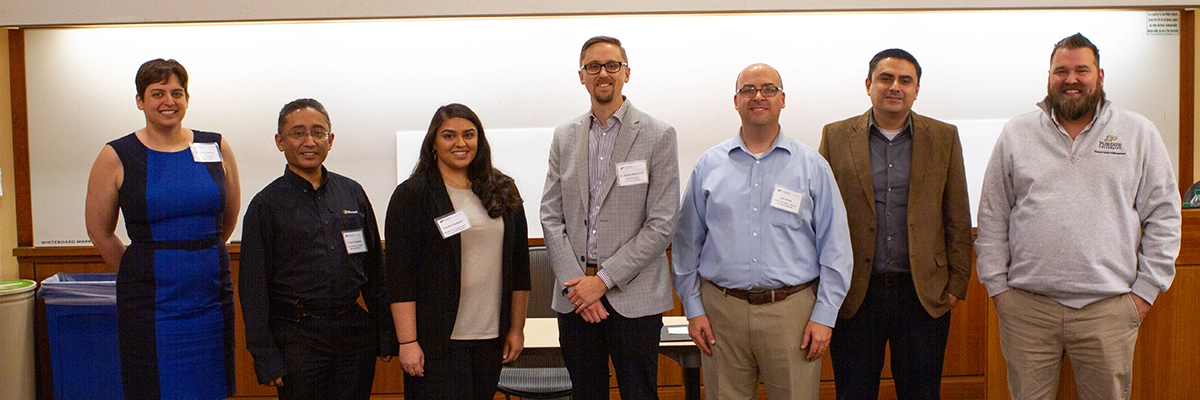
“Everyone came together at Purdue and there was a cross-pollinating of a lot of people from different universities across the nation. The motivated and sweet spirit of people to address this problem creatively and apply their best work to it was encouraging to me,” says Whitenack. “I would encourage any companies or organizations to partner with Purdue on something like this. It will be very worthwhile for both parties and brings creativity into your organization.”
“This new generation wants to use their analytics abilities for good, so they are making positive impacts in the lives of others. It is an honor for us to steward all these students. We have been very thoughtful in designing our next Data4Good competition by incorporating additional AI certification options, training events and providing a case that will more than double student participation,” adds Lanham.
